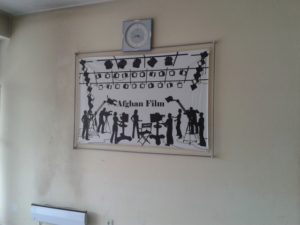[:en]by Isabella Bauer (October 2015)

Photo by Isabella Bauer
I want to draw your attention to a country that makes the news mostly for suicide bombings and kidnappings, not sustainability or peace.
A glance into the trash-filled banks of Kabul River, one of Afghanistan’s most important water sources, demonstrates how little people care about their environment. Economically, almost the entire state budget is made up of foreign aid, and there is barely any legal economic development to speak of. The country has been involved in its own and other nations’ wars for roughly 30 years, was occupied by the Soviet Union, ruled by the Taliban, bombed by NATO and is facing a growing insurgency. Its society is traumatised, ethnically divided and split between tradition and modernity. Armies of foreign soldiers and development workers have attempted to bring peace, yet to no avail. However, I want to tell a positive story, one where the tireless efforts by some Afghan individuals can have a lasting effect on societal peace and healing.
Amidst the walls, barbed wires, soldiers, road blocks and sandbags that make up contemporary Kabul, there is a group of buildings surrounded by an overgrown garden and a fence. It is the state’s movie archive, Afghan Film. Afghanistan is not only a country rich in dust and war, but also in history and culture. Keeping that history alive is, I believe, tremendously important for the Afghan nation. A common past is part of the glue that keeps a society together, gives it an identity, makes it resilient against internal rifts and therefore promotes peace. For two generations of displaced people, Afghan Film can bring back the roots that they lost during the war and serve as a reminder of how Afghanistan used to be before the Soviet invasion.
During the Taliban regime, the Minister of Information and Culture ordered the archive to be burned. To fundamentalists trying to establish an autocratic state, the past is threatening – not only for religious reasons, but because it reminds people of different times. The archives’ employees, being aware of the importance of their film reels, risked their lives by hiding the archive of negatives behind a secret door. Religious police never found them. Currently, the staff works on digitalising the films, making them available to the wider public, showing them at movie festivals around the world and producing new films.
It does not seem like much, but its impact will in the long run be greater than foreign bombs and foreign aid. Sometimes, in my opinion, sustainability means just that: dedicated individuals working towards preserving the heritage of their culture, giving a war-weary nation a common identity and a voice.
The staff of Afghan Film appears at minute 43 of this National Geographic Documentary on Afghanistan’s cultural heritage.
Isabella Bauer is 26 years old and currently a Master’s student of Peace Studies and International Relations. In her Master’s thesis, she discusses the dilemmas of the Afghan state-building project. She has in the past worked for an Afghanistan project of the “Deutsche Gesellschaft für Internationale Zusammenarbeit” (GIZ) and has visited Kabul in August 2015. She spends most of her free time climbing artificial and real rocks and taking long walks.[:]
